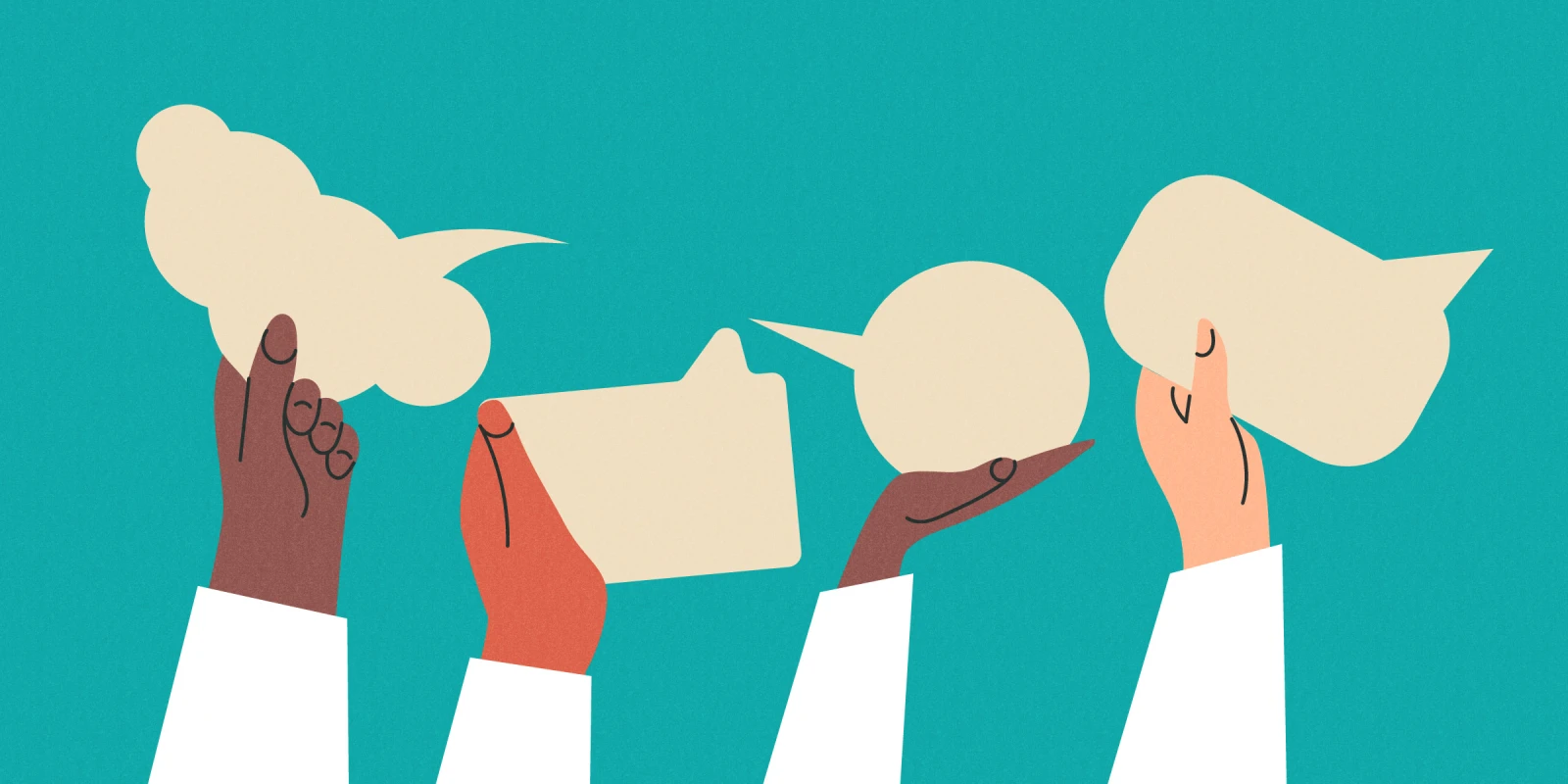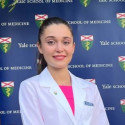It’s a beautiful summer day in Santa Monica. I’m sitting in the backyard of Dr. G’s house, an MD/PhD turned entrepreneur who proofread my medical school application and helped me prepare for my interviews.
I’m an Iranian immigrant who at that time had been in the U.S. for two years, and my premed advisors were Reddit and Student Doctor Network users for the most part. So, I would absorb any mentorship from a live human being like a sponge.
Dr. G’s daughter and her babysitter roam the garden as we speak in a blend of Farsi and English. It’s the most blissful time I had had in years, with my Yale School of Medicine acceptance in hand, heading to New Haven in a few weeks. I thought, it’s going to be smooth sailing after this; I got past the whirlwind of immigration, the COVID-19 pandemic, and the American Medical College Application Service cycle. Dr. G tells me, “Don’t become involved in a million activities, volunteering, clubs, this or that — just keep your head down, study, and ace your rotations. That’s what’s important.”
His advice had an almost comforting familiarity to it. For as long as I remember, studying and academic excellence took priority over everything, even well-being. Back in high school, two months before the Iranian university entrance exam, I fell down a flight of stairs in school. My classmates called for the vice principal. She arrived in a panic and asked me, “Are your head and right hand hurt?” Still in shock from pain, I said no. Relieved, she left and I limped my way out on my swollen ankle.
The exclusive emphasis on academics initially bothered me, but over the years I learned to find comfort in the straight-forwardness of absorbing knowledge. Having lived in an unpredictable country, studying and, later on, gaining skills were the most concrete and fair aspect of life, and ultimately the way out of chaos. The importance of passions, hobbies, and personality, for medical school admission, were new to me. After years of being told that “the answer sheet scanner doesn’t care who you are,” I worked on developing the exact opposite mindset. Culture shock, you may call it.
Fast forward, I’m in my clerkship year. Here I am, trying to balance doing well on clerkships, studying, keeping up with specialty research, and leading an interest group. I seek advice on shaping my journey toward becoming a qualified contender for residency.
“Well, programs don’t JUST want a medical student and researcher. They want someone with perhaps an interesting story and unique passions; a leader with the potential to change the field.”
“So many medical students ace their USMLEs and lead an interest group or two. Publishing is also so easy these days, unless it’s a highly involved clinical or basic science project in a prestigious journal. There just needs to be something MORE.”
“Take that research year!”
“Taking an additional year is a waste of time!”
“Programs just need to vibe with you. People could dislike the way you breathe or walk in a sub-internship and you’re Do Not Rank.”
“Your mentor just has to make a call. NETWORK, NETWORK, NETWORK.”
“Churn out publications, the quality doesn’t matter. Program directors won’t read, but they’ll count. Research, Step 2, and letters of recommendation, the rest doesn’t matter.”
“It’s kind of like dating, you know? You could have cured cancer and they still would find something wrong with you, if they just don’t like you.”
I didn’t know what to do with all this advice, which at times was contradictory. But then I realized: This is all familiar. Before I applied to medical school, a research mentor told me how upon applying to medical school, I will be compared with applicants who had been doing impactful research or led international nonprofits since high school. What was I doing in high school? Drilling into my head that Sa’di, the famed Persian poet, had in fact lived in the 13th century, not the 12th. She lectured me about facing failure, tried to convince me that I’m probably behind in many ways, so I should just be content that I’ve made it to the U.S., and medical school would be shooting for the stars. However, I still went on to explore my interests while fulfilling application requirements. A few years after that conversation, those incredibly high-achieving peers my mentor had compared me to became my classmates and friends. Sometimes one can learn from their younger self, who was bright-eyed, stubborn, and optimistic, and simply said, “Oh well, why not?”
Recently, the attending physician I worked with during my neurology consults rotation introduced me to the term “Paralysis by Analysis.” Trying to find a predictable pattern in things that are largely subjective, like the profile of an ideal candidate in the eyes of medical school admission committees or residency program directors isn’t truly fruitful, and usually ends up in more confusion, anxiety, and action paralysis. Plus, the process itself is constantly changing. In the past five years, Step 2 CS was cancelled, Step 1 transitioned to pass-fail score reporting, and most recently, geographic preference signaling has been added and a limit has been set to activities in ERAS.
Ultimately, I’ve stopped seeking concreteness where it simply cannot be found. I’ve decided to make peace with uncertainty, take life day by day, and prioritize becoming the best physician I can be. I have also grasped the importance of the proverbial “grain of salt” that advice should be taken with, no matter who it comes from. Based on my experience during clerkships, learning to navigate uncertain and difficult-to-predict situations are useful skills to have both in life and on the wards.
Match day will come, and I will not spend my years in medical school anticipating what will be in that envelope.
What strategies have you found most effective in balancing academic excellence with personal well-being during your medical journey? Share in the comments below!
Helia is a second-year medical student at Yale. She also enjoys playing the piano and sketching, as well as advocacy for child abuse survivors through her podcast, The Blue Radio.
Image by Maria Petrishina / Getty Images







